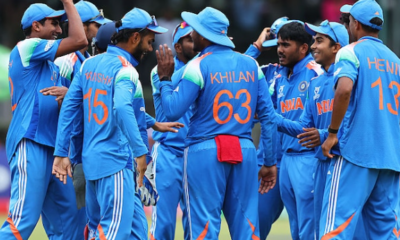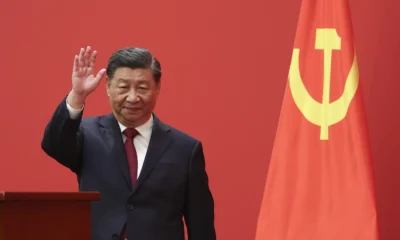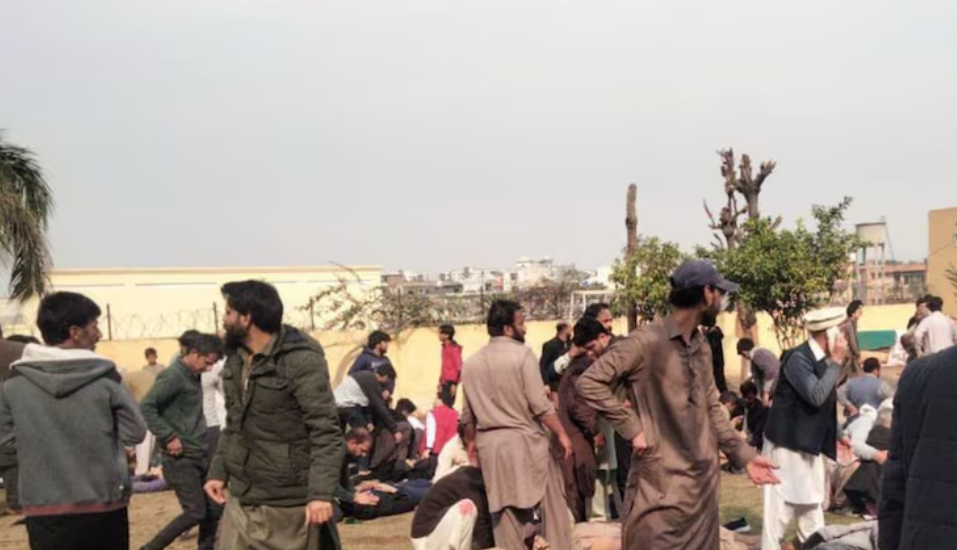India added 7,300 more millionaires in 12 months to mid-2018, taking the total number of dollar-millionaires to 343,000, says the latest Credit Suisse Research Institute’s 2018 Global Wealth Report.
However, the wealth per adult stayed flat at $ 7,020 (around Rs 515,970) as against $47,810 in China (Rs 35.14 lakh), says the report.
The term wealth is defined as the value of financial assets (such as stocks and fixed interest instruments) plus real assets (such as property and gold) owned by the households, minus their debts.
Interestingly, personal wealth in India was dominated by property and other real assets, which make up 91 percent of estimated household assets. Over the 12 months, non-financial assets grew by 4.3 percent, accounting for all of the wealth growth in India.
House-price movements are a proxy for the non-financial component of household assets, which reached a high of 9 percent for India.
India’s wealth has been rising since the turn of the century, with the annual growth of wealth per adult averaging at 8 per cent over 2000–18, the report says.
The report highlights the lopsided growth in India. While the country ranks sixth globally in terms of the ultra-rich population — those with wealth in excess of $50 million — it is also one of the highest contributors to the world’s adult population with base-tier wealth (less than $10,000, or about Rs 730,000).
More than 90 per cent of India’s population belongs to the base tier when it comes to the distribution of wealth. In comparison, a third of China and only 28.4 per cent of the US’ adult population belong to this segment.
“Residents of India remain heavily concentrated in the bottom half of the distribution. However, the country’s high wealth inequality and immense population mean that India also has a significant number of members in the top wealth echelons,” says Credit Suisse Global Wealth Report 2018.
The mean wealth in India is estimated at $7,020 per adult, while the median wealth is even lower at $1,289 per adult. India has an adult population of 850 million, second only to China, which has 1,085 million. However, the mean wealth per adult in China is $47,810 and the median wealth is $16,333, the report says.
While 91 per cent of the adult population has wealth below $10,000, the report says, “At the other extreme, a small fraction of the population (0.6 per cent of adults) has a net worth over $100,000. However, owing to India’s large population, this translates into 4.8 million people. The country has 404,000 adults in the top one per cent of global wealth holders, which is a 0.8 per cent share. By our estimates, 3,400 adults have wealth over $50 million, and 1,500 have more than $100 million.”
Prior to 2008, wealth rose strongly from $1,830 in 2000 to $5,020 in 2007. After falling 26 per cent in 2008 (on account of global financial crisis), it rebounded, and grew at an average rate of 7 per cent up to 2018, the report suggests.
“In the 12 months to mid-2018, in USD terms wealth in India grew a modest 2.6 per cent to around $ 6 trillion and wealth per adult stayed flat at $ 7,020, mainly due to currency depreciation of 6 per cent against the dollar,” it said. However, holding exchange rates constant, total wealth grew strongly at 9.7 per cent.
Personal wealth in India is dominated by property and other real assets, which make up 91 per cent of estimated household assets. Notably, it was the growth of non-financial assets by 4.3 per cent over the 12 months that accounted for all of the wealth growth in India. House-price movements are a proxy for the non-financial component of household assets, which reached a high of 9 per cent for India, it said.
“This is typical for developing countries. Personal debts are estimated to be only $840, or just 11 per cent of gross assets, even when adjustments are made for under-reporting. Although indebtedness is a severe problem for many poor people in India, overall household debt as a proportion of assets in India is lower than in most developed countries,” Credit Suisse says.
At the other extreme, is the affluent class of India – the millionaires, whose numbers, as per Credit Suisse estimates, stood at 343,000 by mid-2018, year-on-year (y-o-y) rise of 7,300. There are 3,400 ultra-high net-worth individuals in India, with wealth over $50 million – the sixth highest in the world, after US, China, Germany, United Kingdom and Japan.
| Change in household wealth |
| Total Wealth |
Change in total wealth |
Wealth per adult |
|
|
| 2018 |
2017-18 |
2017-18 |
2018 |
2017-18 |
|
| USD bn |
USD bn |
% |
USD |
% |
|
| Africa |
2,553 |
108 |
4.4 |
4,138 |
1.5 |
| Asia-Pacific |
56,715 |
929 |
1.7 |
48,119 |
0 |
| China |
51,874 |
2,266 |
4.6 |
47,810 |
4 |
| Europe |
85,402 |
4,432 |
5.5 |
1,44,903 |
5.4 |
| India |
5,972 |
151 |
2.6 |
7,024 |
0.7 |
| Latin America |
8,055 |
(415) |
(4.9) |
18,605 |
(6.5) |
| North America |
1,06,513 |
6,486 |
6.5 |
3,91,690 |
5.5 |
| WORLD |
3,17,084 |
13,958 |
4.6 |
63,100 |
3.2 |
| Source: Credit Suisse Global Wealth Report 2018 |
In the next five years to 2023, Credit Suisse estimates the wealth in India to grow by 8 per cent per annum to reach $8.8 trillion. India could be home to 526,000 millionaires, an increase of over 53 per cent or 8.9 per cent per annum.
India had one of the highest proportion of female billionaires at 18.6 per cent. However, the women’s share of wealth in India was significantly lower (between 20-30 per cent) compared to global average of 40 per cent.
GLOBAL VIEW
The aggregate global wealth grew nearly 4.6 per cent, or $14 trillion, in the last 12 months till 2018-mid to $317 trillion – outpacing the growth in population, the Credit Suisse report says. Wealth per adult, as a result, grew at a record 3.2 per cent during this period to $63,100 per adult.
The US contributed most to global wealth, adding $6.3 trillion, taking its total to $98 trillion.
China, according to the report, now has the second largest household wealth, having added $2.3 trillion to reach $52 trillion – and is projected to grow by a further $23 trillion in the next five years, taking its share of global wealth from 16 per cent in 2018 to just above 19 per cent in 2023.
“China is now clearly established in second place in the world wealth hierarchy. Our revised figures suggest that China overtook Japan with respect to the number of ultra-high net worth (UHNW) individuals in 2009, total wealth in 2011, and the number of millionaires in 2014,” the Credit Suisse report says.
Switzerland remains the richest nation in the world in terms of wealth per adult with $530,240 in mid-2018, followed by Australia ($ 411,060), with Singapore ($ 283,120) ranking ninth among major economies.
Global wealth is projected to rise by nearly 26 percent or 4.7 percent per annum over the next five years, reaching $399 trillion by 2023.
Emerging markets wealth will grow at a faster rate of 7.3 percent per annum and will be responsible for 32 percent of the growth, despite accounting for just 21 percent of the current wealth.
Wealth in Asia-Pacific is expected to grow by 5.9 percent per annum or 33.1 percent to reach $153 trillion in 2023.
In Asia-Pacific, the number of millionaires is expected to rise 7.6 percent per annum to reach 15 million in 2023, while the UHNW (ultra high networth wealth) segment is forecast to grow to around 58,300 at 8 percent annually, with 46 percent in China.


 Latest world news23 hours ago
Latest world news23 hours ago
 India News23 hours ago
India News23 hours ago
 India News23 hours ago
India News23 hours ago
 Cricket news17 hours ago
Cricket news17 hours ago
 Latest world news17 hours ago
Latest world news17 hours ago
 India News18 hours ago
India News18 hours ago
 Latest world news13 hours ago
Latest world news13 hours ago
 Cricket news12 hours ago
Cricket news12 hours ago












